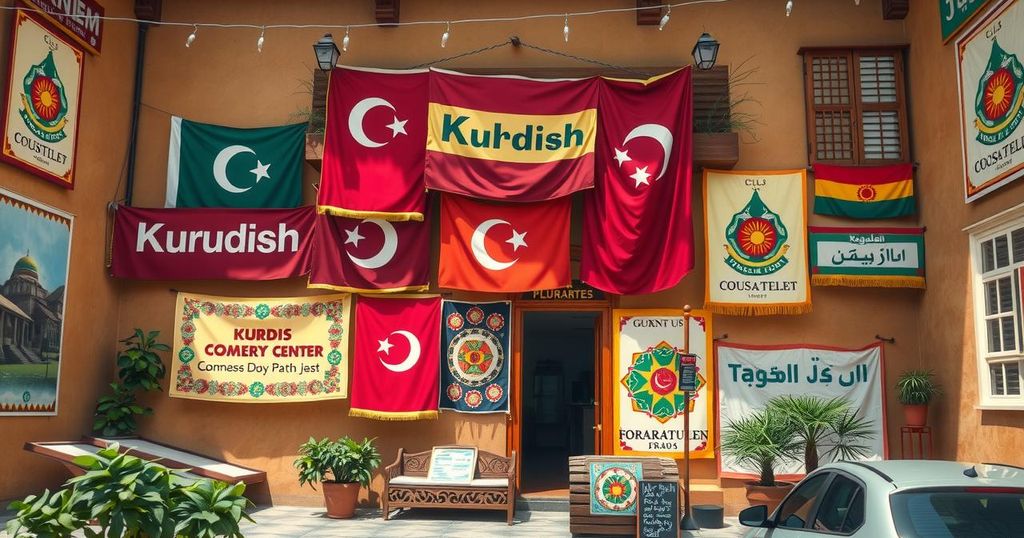Exploring the Financial Underpinnings of the PKK in Europe

The PKK exploits its European networks for financial support, engaging in extortion and fundraising linked to both legitimate and criminal activities. Recent developments show both its operational methods and the complexities surrounding Turkish peace negotiations. Ocalan’s call for disarmament introduces a potential turning point, but skepticism exists concerning the PKK’s willingness to comply due to financial interests.
Dutch sociologist Joost Jongerden has extensively researched the Kurdistan Workers’ Party (PKK) and noted that it possesses a significant financial base in Europe, which poses challenges to the peace negotiations with Turkey. Experts, along with court documents and intelligence reports, reveal the PKK’s systematic collection of revenues from the Kurdish diaspora, utilizing methods such as door-to-door fundraising, ideological education, and events like natural disasters to solicit donations.
The PKK raises funds through a so-called “revolutionary tax” imposed on the Kurdish community and is linked to criminal activities, including drug trafficking. Although the PKK is banned in many European nations, it continues to maintain influence by infiltrating community centers, promoting propaganda for its imprisoned leader, Abdullah Ocalan, and organizing rallies despite Turkey’s calls for action against its operatives in NATO member states like Sweden and Finland.
Ocalan’s recent appeal for the PKK to disarm marks a pivotal turn in the organization’s bid for autonomy. However, skepticism remains regarding the PKK’s capacity to comply with these directives. Richard Outzen, a former US Army colonel, emphasizes that the PKK benefits financially from delaying disarmament, as members have developed significant economic interests that are difficult to relinquish.
Evidence from ongoing court cases in France shows the PKK’s extensive tax collection networks, often employing intimidation tactics to secure payments from the Kurdish community. Testimonies reveal threats of severe violence and social exclusion against those who resist contributions. In Sweden, a high-profile incident involving armed extortion showcased the PKK’s aggressive fundraising methods, leading to increased scrutiny from authorities as part of Turkey’s NATO membership conditions.
The PKK has established a robust fundraising operation in Europe, estimated to yield around €17 million annually in Germany alone, primarily through organized campaigns targeting local businesses. Authorities in Europe acknowledge the organization’s financial infrastructure includes legitimate activities alongside illegal operations, such as drug trafficking and fraud.
While Turkey alleges that the PKK uses the heroin trade for funding, European experts often downplay these claims as unsubstantiated. The PKK’s financial strategies have been central to its survival, enabling it to maintain an active military capacity despite lacking a recognized state infrastructure.
As political tensions rise, Ocalan’s call for disarmament has spurred reactions from Kurdish communities in Europe, viewing it as a significant opportunity for advancing their political objectives. The PKK continues to propagate its ideology through various channels, including films and educational events, reinforcing Ocalan’s narratives across Europe.
Since being designated a terrorist organization in the EU, the PKK has faced legal challenges. It has attempted to contest this classification through protests and appeals, citing the need for armed resistance for self-determination. However, these efforts have been largely unsuccessful in altering its status on the EU’s terrorism list, which remains a significant factor in its operational activities.
The PKK has established a complex financial network in Europe, which not only fuels its operations but also complicates peace negotiations with Turkey. As the organization navigates its political landscape, including recent pressures to disarm, its fundraising tactics remain crucial to its survival and influence within both the Kurdish diaspora and broader geopolitical contexts. The interplay between its financial prowess and political aspirations presents ongoing challenges for diplomacy in the region.
Original Source: www.thenationalnews.com







